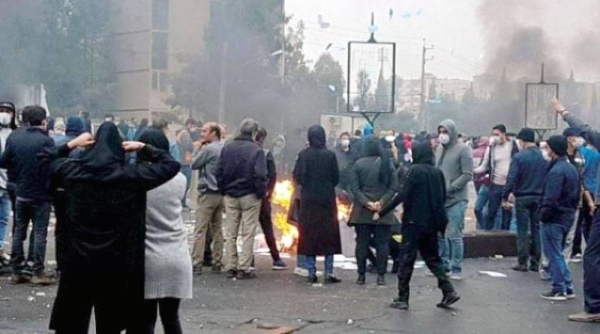
The Lebanese army moved to end a wave of protests against tax increases and alleged official corruption Saturday as the fragile governing coalition fractured over promised economic reforms.
Troops reopened some major highways that had been blocked by protesters after firing tear gas and water cannons to disperse the huge crowd that had gathered into the early hours in Riyadh al-Solh Square in the heart of the capital Beirut.
The Internal Security Forces said 70 protesters were arrested.
Prime Minister Saad Hariri has given his deeply divided coalition partners until Monday evening to give their backing to a reform package aimed at shoring up the governments finances and securing the disbursement of desperately needed economic assistance from donors.
Hariris political rival, Hezbollah leader Hassan Nasrallah, was expected to give his Shiite militant groups response in a speech to be aired later on Saturday.
Groups of young people gathered on the streets of the capital during the morning, preparing for a new day of protests despite the burgeoning crackdown.
They collected tires and other material with which to throw up improvised roadblocks, AFP correspondents reported.
Parts of central Beirut looked like a war zone, littered with broken glass, overturned litter bins and the remains of burning tires. Banks and many restaurants and shops remained closed.
The demonstrations first erupted on Thursday, sparked by a proposed 20 cent tax on calls via messaging apps such as WhatsApp.
Such calls are the main method of communication for many Lebanese and, despite the governments swift abandonment of the tax, the demonstrations quickly swelled into the largest in years.
The protesters are demanding a sweeping overhaul of Lebanons political system, citing grievances ranging from austerity measures to alleged corruption to poor infrastructure.
Thousands of people of all ages, sects, and political affiliations brought the capital to a standstill on Friday, with demonstrations reported across the country.
Minor clashes continued through the night pitting groups of young men against the army, an AFP reporter said.
One protester in the southern city of Nabatieh, a Hezbollah stronghold, vowed to defy the crackdown.
"They are trying to portray us as a mob, but we are demanding our rights," he told a local television channel.
"We are used to repression."
Lebanon has one of the highest public debt burdens in the world and the government is trying to reach agreement on a package of belt-tightening measures to cap the deficit in next years budget.
The promised austerity moves are essential if Lebanon is to unlock $11 billion in economic assistance pledged by international donors last year.












